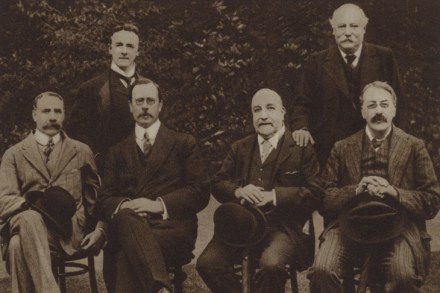Northern lights | 16 August 2018
The Rembrandt show at the National Galleries of Scotland (until 14 October) has a problem. A mighty haul of Rembrandt paintings and prints are arrayed against a backdrop that mines the historical impact of his work on British artists and collectors. This is interesting. The problem is that the Rembrandt works are so astounding that there’s a danger you won’t bother with the rest. You should, because here Reynolds and Raeburn and Ramsay and more, all inescapably influenced by Rembrandt, tell fascinating and sometimes complicated tales of artistic heredity and homage. There’s no disgrace in going only for the Rembrandts, though. Hell, go there just to see the one wall




















